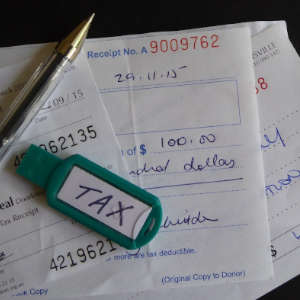
- October 1, 2023
- Comments: 0
- Posted by: user
Running a small business requires careful financial management and one of the cornerstones of sound financial practices is effective expense tracking and categorisation. By maintaining a clear and organised record of your business expenses, you can make informed decisions, maximise tax deductions, and ensure the long-term financial health of your enterprise.

The profit you make as a business is the amount of money you make – minus the money you have to spend to operate that business. So keeping track of those expenses is vital.
Here are some essential tips and best practices for tracking and categorising business expenses:
1. Keep Personal and Business Expenses Separate:
- Maintain separate bank accounts and credit cards for your business and personal expenses. This separation simplifies the tracking process and helps prevent confusion. Many sole traders fail to do this which means they have no clear idea of how much money they are making. This also makes tax time a nightmare.
2. Use Accounting Software:
- Invest in accounting software like QuickBooks, Xero, or MYOB. These tools automate expense tracking, categorisation., and reporting, saving you time and reducing the risk of errors. Setting up online accounting is easy (and using it is even easier) but we can do it for you if you need help.
3. Capture All Receipts:
- Keep a digital or physical copy of every receipt related to business expenses. Nowadays this is often done electronically and is easy and seamless. This includes paper receipts, email confirmations, and digital invoices. With them, store them in a dedicated folder or cloud storage for easy access. Be very vigilant with this and do it at once. “I’ll do it tomorrow” is just making it hard for your self.
4. Set Up Expense Categories:
- Create a clear and comprehensive list of expense categories relevant to your business. Common categories include office supplies, utilities, travel, marketing, and rent. Tailor the categories to your specific industry and needs.
5. Consistent Data Entry:
- Regularly enter expense data into your accounting software. Set aside time each week or month for this task to avoid a backlog of receipts and invoices.
6. Use Descriptive Memos:
- Attach descriptive memos or notes to each expense entry. This helps you remember the purpose of the expense and provides clarity during audits or financial analysis. Remember, you won’t know what “$134.25” was for in six months time. Neither will your accountant.
7. Track Mileage and Travel Expenses:
- If your business involves travel, keep a mileage log or use mileage tracking apps to record business-related trips. Additionally, categorise and save travel-related expenses, such as hotel bills and meal receipts.
8. Reconcile Bank Statements:
- Regularly reconcile your business bank and credit card statements with your accounting records. This helps identify discrepancies and ensures that all transactions are accurately recorded.
9. Monitor and Review Regularly:
- Periodically review your expense reports and financial statements to identify trends, spot potential cost-saving opportunities, and ensure compliance with your budget.

10. Implement an Approval Process: – For larger expenses or those incurred by employees, establish an approval process. This ensures that expenses align with your business’s financial goals and policies.
11. Automate Recurring Expenses: – Use automation features in your accounting software to handle recurring expenses like subscriptions, rent, and utilities. This reduces the risk of missing payments and late fees and makes life easier for you.
12. Educate Your Team: – If you have employees or contractors, educate them about your expense tracking and reimbursement policies. Encourage them to provide detailed receipts and follow the established procedures.
13. Prepare for the end of the financial year: – As tax season approaches, review your expenses and consult with a tax professional to maximise deductions and ensure compliance with tax laws.
14. Seek Professional Advice: – If you’re unsure about expense tracking or have complex financial needs, consider consulting a professional accountant or bookkeeper. They can provide guidance, set up your accounting system, and ensure your finances are in order. An accountant can set up even the most complex tracking systems in a way that will be very easy for you or your employees to use.

Effective expense tracking and categorisation. are vital for the financial success of your small business. By implementing these tips and best practices, you’ll not only have a clearer picture of your financial health but also be better prepared for tax time and future business decisions. Remember that consistency and organisation are key to maintaining accurate records and achieving long-term financial stability. Perhaps, most importantly, you are making life much easier for yourself.
